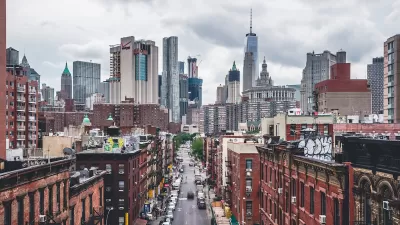The mark of human civilization will last long after humans go extinct, according to this article looking at the anthropocene, or the age of humankind.
Writing for National Geographic, Elizabeth Kolbert explores the creation of the concept of the anthropocene and what impact it will have in the geologic history of the earth.
"The group agreed to look at it as a formal problem in geology. Would the Anthropocene satisfy the criteria used for naming a new epoch? In geologic parlance, epochs are relatively short time spans, though they can extend for tens of millions of years. (Periods, such as the Ordovician and the Cretaceous, last much longer, and eras, like the Mesozoic, longer still.) The boundaries between epochs are defined by changes preserved in sedimentary rocks-the emergence of one type of commonly fossilized organism, say, or the disappearance of another.
The rock record of the present doesn't exist yet, of course. So the question was: When it does, will human impacts show up as "stratigraphically significant"? The answer, Zalasiewicz's group decided, is yes-though not necessarily for the reasons you'd expect."
FULL STORY: Age of Man

Maui's Vacation Rental Debate Turns Ugly
Verbal attacks, misinformation campaigns and fistfights plague a high-stakes debate to convert thousands of vacation rentals into long-term housing.

Planetizen Federal Action Tracker
A weekly monitor of how Trump’s orders and actions are impacting planners and planning in America.

San Francisco Suspends Traffic Calming Amidst Record Deaths
Citing “a challenging fiscal landscape,” the city will cease the program on the heels of 42 traffic deaths, including 24 pedestrians.

Defunct Pittsburgh Power Plant to Become Residential Tower
A decommissioned steam heat plant will be redeveloped into almost 100 affordable housing units.

Trump Prompts Restructuring of Transportation Research Board in “Unprecedented Overreach”
The TRB has eliminated more than half of its committees including those focused on climate, equity, and cities.

Amtrak Rolls Out New Orleans to Alabama “Mardi Gras” Train
The new service will operate morning and evening departures between Mobile and New Orleans.
Urban Design for Planners 1: Software Tools
This six-course series explores essential urban design concepts using open source software and equips planners with the tools they need to participate fully in the urban design process.
Planning for Universal Design
Learn the tools for implementing Universal Design in planning regulations.
Heyer Gruel & Associates PA
JM Goldson LLC
Custer County Colorado
City of Camden Redevelopment Agency
City of Astoria
Transportation Research & Education Center (TREC) at Portland State University
Jefferson Parish Government
Camden Redevelopment Agency
City of Claremont




























